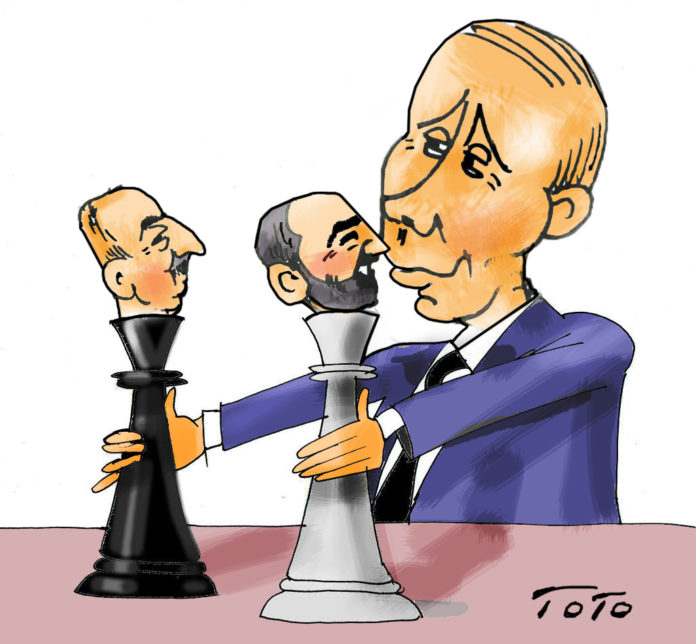The second Karabakh war came to an end with the signing of the trilateral declaration on November 9, 2020, but the war of attrition continues with Azerbaijani incursions within Armenia’s sovereign territory.
No matter how those skirmishes are portrayed by the participants of the conflict or by the international community, the intention is very clear: Presidents Recep Tayyip Erdogan of Turkey and Ilham Aliyev of Azerbaijan have referred, on many occasions, to Armenia’s dwindling population, which may eventually make the takeover easier, even without a war.
Unfortunately, there is a sad logic behind that argument. Many Armenians leave their homeland because they see no future for their children there. No matter how patriotic Armenia’s citizens may be, thinking objectively, they may conclude that they cannot build a solid family life in their homeland and they seek life elsewhere. After all, they think, they will have one life to live and they cannot afford to lose that life in a perpetual hot zone which might break out into war at any given time. That fulfills the ultimate goal of the country’s enemies.
Within this perspective, all political deals, discussions and counteraccusations are rendered meaningless. The alternative must be to build the armed forces and to decide to live in an armed garrison to have peace and stability. That unfortunately does not seem an achievable goal with Armenia’s limited resources and its dependence on its allies and friends for arms supplies.
The continued harassment and aggression by Azerbaijan is intended to convince Armenia to give up Karabakh and worry instead for its own security. That was the conclusion of Thomas de Waal, an expert on the Caucasus with Carnegie Europe, which he explained in an interview with Radio Free Europe.
A segment of the population of Armenia quietly resented the Karabakh war and blamed it for Armenia’s problems; more and more of that population has become vocal: “Let’s get rid of Karabakh and live a peaceful life,” they say. At one point, a similar sentiment was entertained by Baku Armenians, who believed that Karabakh’s demand for independence or unity with Armenia caused the Baku and Sumgait pogroms and led to the expulsion of the 400,000-strong Armenian population in Azerbaijan.








